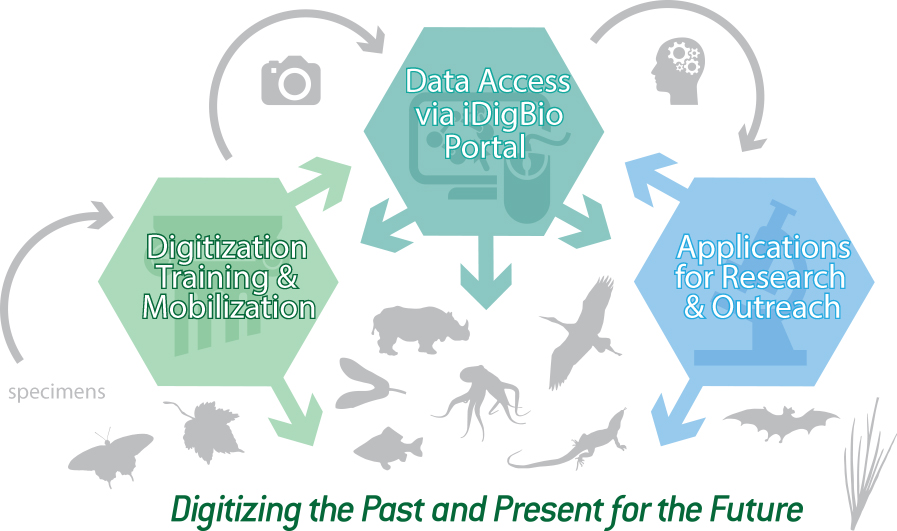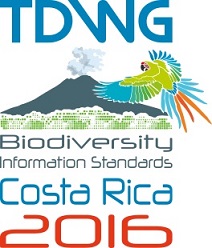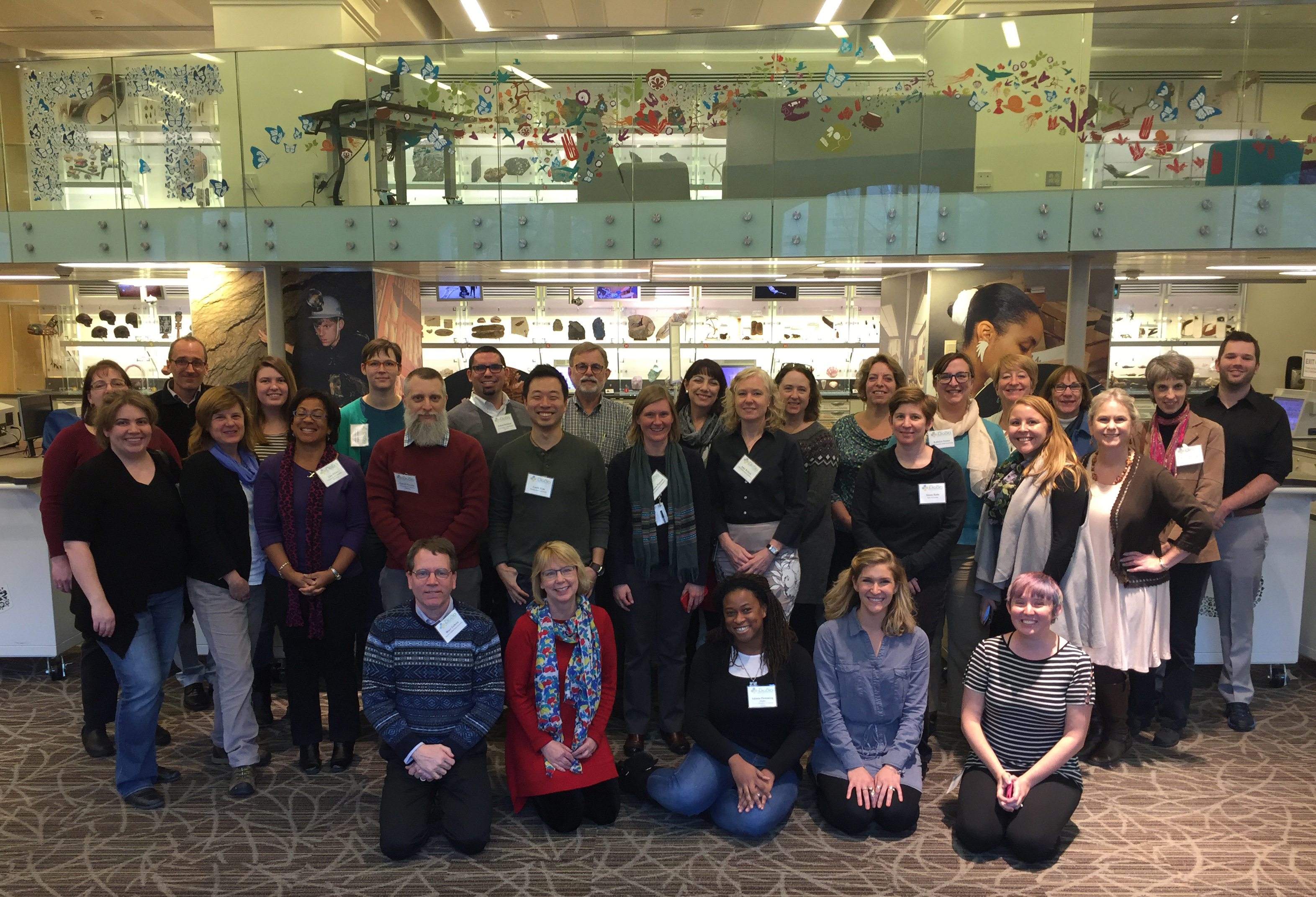RSS Content Feed
iDigBio Bookmarks
iDigBio bookmarks that highlight some of the biodiversity found in the iDigBio Portal are now available. Look for the iDigBio Booth at your next conference and pick some up!
Click on the images below to view printable versions of the fronts and backs.
iDigBio Update for 2016

Dear iDigBio Enthusiasts,
TDWG Biodiversity Data Quality Interest Group seeks data use stories
The TDWG Biodiversity Data Quality (BDQ) Interest Group, a collaboration between data aggregators including iDigBio, researchers and collections data managers, is working towards developing standardized terminology and tools for assessing the research fitness-for-use for biodiversity data.
The Interest Group wishes to capture data user stories in a practical, plain language in order to better understand the specific needs of biodiversity data users. Past and present, successful and failed biodiversity data use attempts are equally welcome. The ultimate goal is to improve the research and collection community's data use experiences and to do this, a public collection of data use examples - or stories - needs to be gathered that would be helpful for data providers, data aggregators, and for you, the user, to demonstrate the spectrum of data relevance, purpose, and analyses of primary biodiversity data.
Do you have a biodiversity data use story to tell? Help with the development of data quality and fitness-for-use metrics by submitting your User Stories so that the team can better understand the specific needs of the community of biodiversity data users.
Questions or interested in heping further? Contact the BDQ Use Cases Task Group.
Research Spotlight: January 2017
TDWG 2016: Highlights for biodiversity research
 -- Contributed by Shelley James & Libby Ellwood, iDigBio
-- Contributed by Shelley James & Libby Ellwood, iDigBio
The Biodiversity Information Standards (TDWG) annual meeting in 2016 had the theme of "Standards Supporting Innovation in Biodiversity and Conservation". Understanding the use of biodiversity standards, and having clear and concise documentation, is essential for the creation, aggregation and downstream use of biodiversity data, and it is exciting to see the diverse TDWG community helping to clarify and expand on the already existing data standards. Read more here.
Finding Federal Scientific Collections Just Got Easier
Federal agencies have taken steps to improve the management and accessibility of scientific collections
Scientific collections—collections of physical specimens such as animal and plant specimens and their tissue and DNA, microbes, geological minerals and moonrocks, even air and water samples—are a vital part of the infrastructure for science in the United States and globally. They also play important roles in supporting public health and safety, agriculture, homeland security, trade and economic development, medical research, and environmental monitoring. Federal departments and agencies own and maintain hundreds of diverse scientific collections, many of which are being used for applications beyond their original use. Many of these collections grow at regular, predictable rates, and all require ongoing maintenance to preserve their value and utility.
Read more here!
IBC2017: Call for abstracts
Green digitization: online botanical collections data answering real-world questions
 An iDigBio-hosted Symposium at the XIX International Botanical Congress in Shenzhen, China
An iDigBio-hosted Symposium at the XIX International Botanical Congress in Shenzhen, China
SPNHC 2017: Call for Abstracts
The Society for Preservation of Natural History Collection's (SPNHC) 2017 Conference, "The Next Generation in Best Practices" is being held in Denver, Colorado, from June 18 - 24, 2017, hosted by the Denver Museum of Nature and Science and the Denver Botanic Gardens.
WeDigBio 2016
Contributed by Libby Ellwood and Austin Mast (iDigBio-Florida State University).





